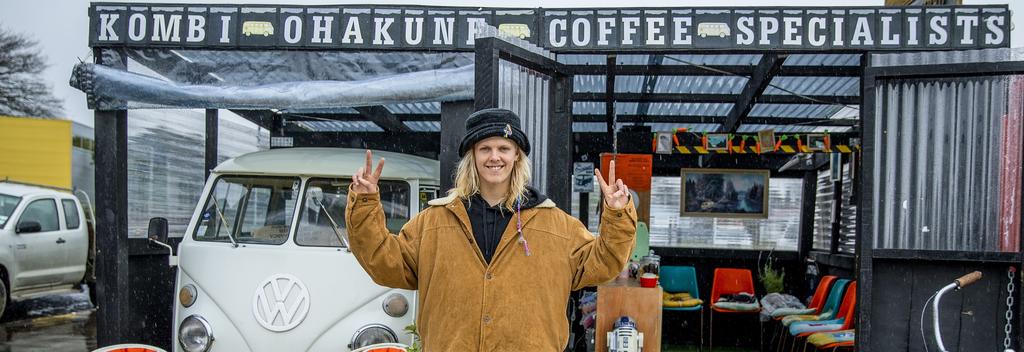-
Popular places to visit
Popular things to do
Helpful tips
Here's a few useful links to help with planning your trip to Aotearoa New Zealand.
-


Officially, New Zealand has three languages; New Zealand English, Māori, and New Zealand Sign Language.
However, New Zealand slang words are a language all on their own. To make sure you understand what the locals are saying, brush up on your New Zealand slang words and learn how to speak Kiwi.
Sounds sweet? Chur.
The meaning of sweet as sums up the truly laid-back attitude of New Zealanders. It can mean “thank you”, “it’s all good”, “no worries”, “you’re welcome”, and “that’s cool”.
As in: "I think we should visit the blue pools when in Wanaka." "Sweet as, sounds good."
Kiwis are a laid back bunch, so they have plenty of ways of expressing that everything will be okay. "She'll be right" is classic Kiwi speak and another synonym for no worries, it's all good, everything will be fine.
The meaning of chur is essentially thank you. You can use this classic Kiwi slang to show gratitude or appreciation.
As explained above, it can also mean "sweet as" or "that's awesome".
As in: "I'll help you change your flat tyre." "Chur, bro."
Used in place of mate, man, or dude, you'll hear Kiwis pepper their sentences with this word.
As in: " Hey bro, how are you?" "I'm good, bro!"
"Choice" can be used to mean sweet, great, excellent, awesome, fantastic, or similar.
What does tu meke mean? The literal translation from Māori is ‘too much’. It's a way of expressing gratitude for generous acts, for example when someone has made your day with a small gesture you might thank them with tu meke.
As in: “Let me grab you a beer from the fridge." "Ah tu meke, bro!"
Another word for sausage. A barbecue is a standard way of socialising in New Zealand, so it's common to hear someone suggest "throwing some snags on the barbie".
Togs is the Kiwi word for swimmers or swimsuit. When heading to the beach in summer, togs and jandals (flip flops) are essential items.
Kiwis love yarns - that is, they love a friendly chat. To have a yarn simply means to have a conversation.
Spinning yarns usually means there is some degree of exaggeration involved.
Dag has two meanings. When you hear someone say "he's such a dag" it means a quirky or funny person who is a bit of a character.
For sheep farmers, dag also refers to matted wool hanging from the hindquarters of a sheep.
A person who is funny or known for outrageous behaviour.
As in: "He's hard-case that Matt. Such a joker."
Another word for toilet.
This is an interjection that can mean "wow" or "awesome", or be used to express surprise and awe.
Kiwis are exceptionally agreeable, so even when they want to disagree with you, they'll throw in a "yeah" as well.
Basically, "yeah, nah" is a non-committal way of saying no.
As in: "Do you want to go for a hike this weekend?" "Yeah, nah, I'll think about it ay."
"Ay" - also spelt "eh" - is a particle that Kiwis love to tack on to the end of a sentence.
It can mean anything from "could you repeat that?", to "what do you think?". It's most often used in the same way you would say "right" or "you know".
As in: "It's hot today, ay".
Cark it means to die. As in: “How’s your cat?" "Oh, she carked it the other day.”
To take a quick look at something. As in: "Take a squiz at this!"
A way of emphatically agreeing with someone. As in: "Auckland has some great cafes." "Hard out!"
Another word for a holiday house, usually small, simple, and close to the beach.
A corner store, something of an institution in New Zealand.